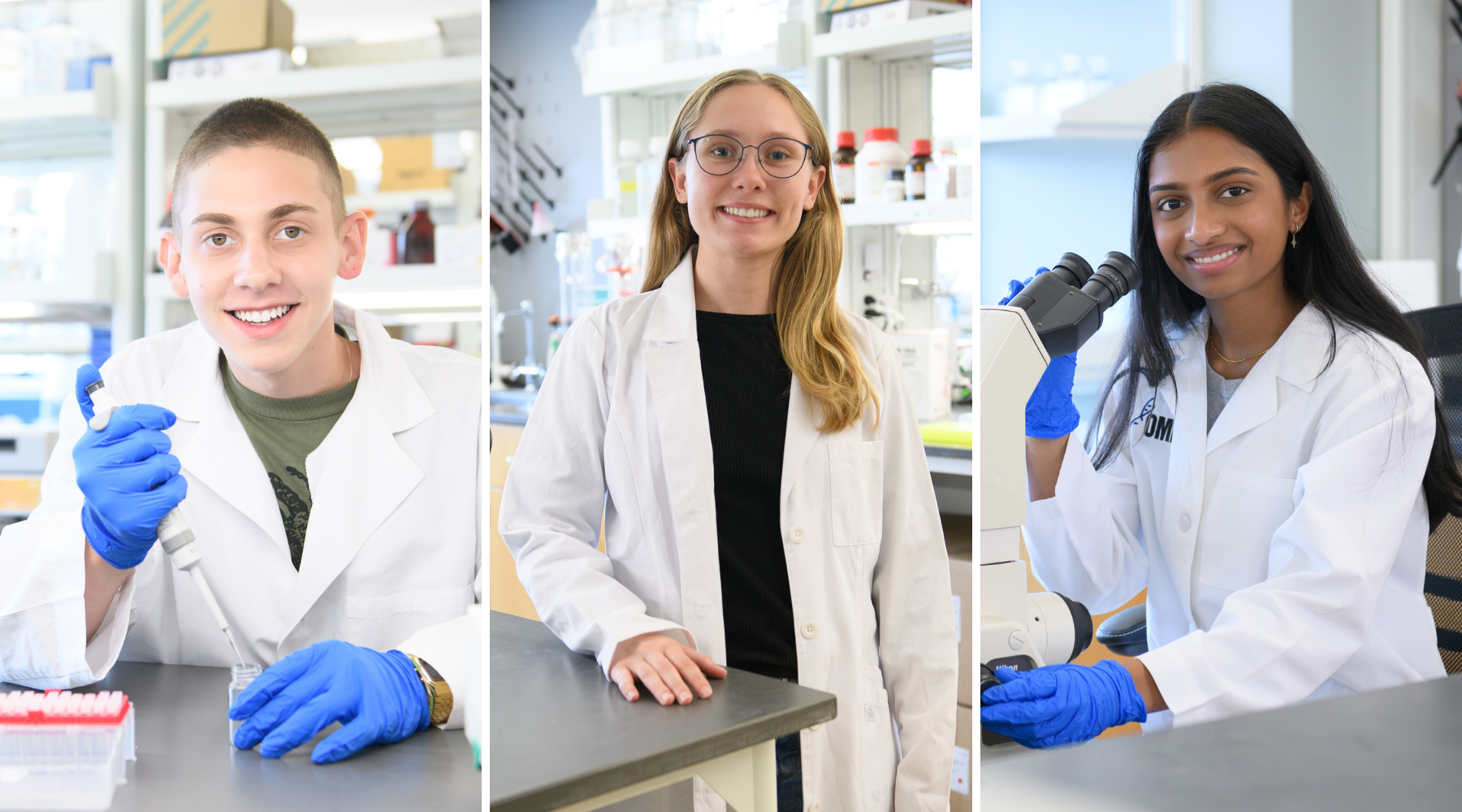Three graduates from Norman high schools spent the summer conducting lab experiments at the Oklahoma Medical Research Foundation.
OMRF’s 16 Fleming Scholars this summer included Landon Gibbins, a Norman High School graduate attending Notre Dame University; Norman North grad Madison Shelton, who will be a senior at the University of Oklahoma; and Meena Seshadri from the Oklahoma School of Science and Mathematics, who attends Emory University.
Working with OMRF scientists Courtney Montgomery, Ph.D., and Heather Rice, Ph.D., Seshadri studied a specific protein linked to Alzheimer’s disease. Her research could lead to novel strategies to slow the most common form of dementia.
Montgomery introduced Seshadri to bioinformatics, which involves analysis of large data sets.
“I used to think that you had to choose between a career as a physician or scientist,” the aspiring medical doctor said. “But OMRF has made me realize that it is possible to not only pursue but excel at both.”
Rice, who’s also a former Fleming Scholar, said Seshadri excelled during her summer at OMRF. “Her research has sparked an ongoing collaboration between my lab and the Center for Biomedical Data Sciences, led by Dr. Montgomery,” Rice said. “We are excited to see where her initial findings lead us.”
Gibbins and Shelton both worked with gene-editing technology called CRISPR, but with different aims.
In the lab of physician-scientist Patrick Gaffney, M.D., Gibbins studied genes that affect the autoimmune disease lupus.
As scientists frequently rediscover, Gibbins’ experiments didn’t go as planned. “But I think Landon learned that failure is an important part of science,” Gaffney said. “If you learn from your failures and try again, you will eventually succeed. Landon can lean on that truth, no matter what direction his career path takes.”
Gibbins, who plans to attend medical school after his undergraduate work, said it was valuable to experience “the amount of determination and commitment it takes” in the lab to make a meaningful scientific discovery.
Working with OMRF scientist Brian Coon, Ph.D., Shelton helped create “knockout” genes for experiments related to the cells that comprise our blood vessels and arteries. She said her experience demonstrated how science intertwines with other disciplines.
“Despite being a cell biologist, Dr. Coon uses engineering to design some of his experiments,” she said. “I was even able to help design a piece needed for an experiment.”
Coon said Shelton helped create an experimental system that will help determine which genes are required for normal vessel growth.
“Madison’s contributions will enable us to study numerous genetically diverse defects of vessel growth in parallel, so that we can find deep similarities and streamline the path to therapeutics,” Coon said.
OMRF’s Fleming Scholar program, founded in 1956, has given more than 600 high school and college students from Oklahoma experience conducting biomedical research. The eight-week program is named for Sir Alexander Fleming, the famed British scientist who discovered penicillin and in 1949 came to Oklahoma City to formally dedicate OMRF’s first building.
To learn more about the program, visit omrf.org/fleming.




